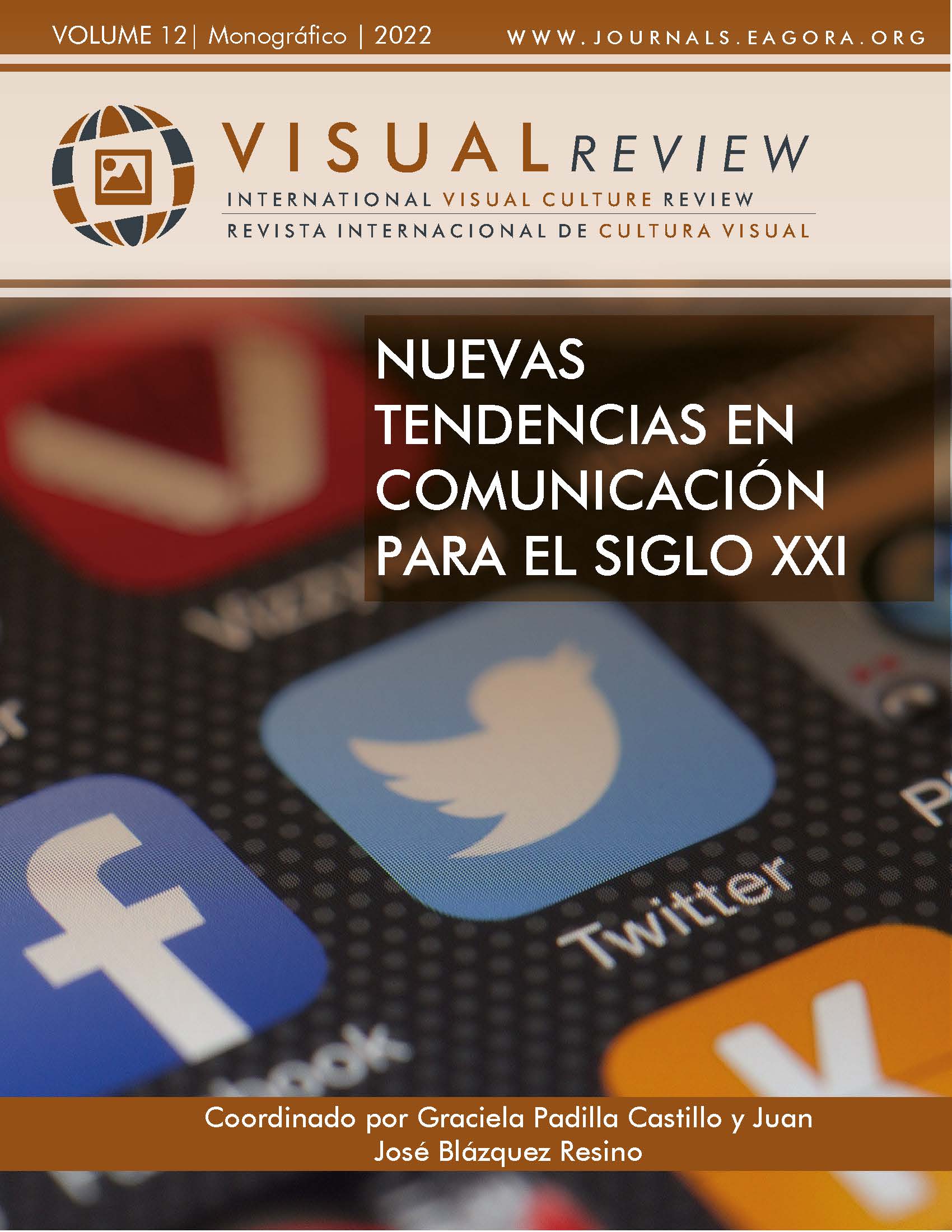Artificial Intelligence and Newsgames in Journalism
Proposals and ideas from the case study of three projects
DOI:
https://doi.org/10.37467/revvisual.v9.3749Keywords:
Artificial Intelligence, Newsgames, Journalism, Communication, FormatAbstract
Technology and emerging user profiles have opened up interesting scenarios for the ideation of new journalistic and communicative formats. Artificial Intelligence (AI) and gamification proposals boost the creation of informative pieces that exploit the possibilities of cyberspace and, at the same time, adapt to new audiences. Based on three research projects and using a methodology based on case studies, the study highlights the fact that these technological developments make it possible to renew the usual formats of journalism and concludes that they have great informative, educational and awareness-raising potential.
Downloads
Global Statistics ℹ️
|
1010
Views
|
513
Downloads
|
|
1523
Total
|
|
References
Castells, M. (2003). La galaxia Internet. Mondadori.
Echevarría, J. (2000). Avatares, realidad virtual y educación digital. Actas del I Congreso Internacional de Educación Digital, 130-135, Bilbao.
Flores- Vivar, J.M. (2019). Artificial Intelligence and journalism: diluting the impact of disinformation and fake news through bots. Doxa Comunicación. Revista Interdisciplinar de Estudios de Comunicación y Ciencias Sociales, 29, 197-212. https://doi.org/10.31921/doxacom.m29a10 DOI: https://doi.org/10.31921/doxacom.n29a10
García-Ortega, A.; García-Avilés, J.A. (2018). Los newsgames como estrategia narrativa en el periodismo transmedia: Propuesta de un modelo de análisis. Revista Mediterránea de Comunicación, 9(1), 327-346. DOI: https://doi.org/10.14198/MEDCOM2018.9.1.19
Gómez, D. (2001). Ideología y videojuegos. Revista enredando. http://www.lafh.info/ staticViewPage.php?cat_ID=90&idioma=ES
Kanozia, R. (2019). Analysis of digital tolos and technologies for Debunking Fake News. Journal of Content, Community and Communication, 9 (5), 114-122. https://doi.org/10.31620/JCCC.06.19/16
Kathleen M. E. (1989). Building Theories from Case Study Research. The Academy of Management Review, 14(4), 532-550. DOI: https://doi.org/10.5465/amr.1989.4308385
Kumar, A., Singh, S.; & Kaur, G. (2019). Fake news detection of Indian and United State election data using machine learning algorithm. International Journal of Innovative Technology and Exploring Engineering, 8(11), 1559-1563. DOI: https://doi.org/10.35940/ijitee.K1829.0981119
Marín, I, Hinojosa, M.; & Ruiz, J. (2018). Newsgames en Ecuador. Correspondencias & Análisis, 8, 121-145. DOI: https://doi.org/10.24265/cian.2018.n8.06
Martín Gutiérrez, D.; Hernández-Peñaloza, G.; Menéndez, J.M.; & Álvarez, F. (2020). A Multi Modal approach for fake news discovery and propagation from big Data Analysis and artificial intelligence Operations. NEM Summit, 1(3).
Paíno, A.; & Rodríguez, M. (2016). Renovarse o morir. Los “docugames”, una nueva estrategia transmedia que reinventa las formas de transmitir la realidad. ICONO14, 14, 155-180. DOI: https://doi.org/10.7195/ri14.v14i1.908
Pastor, Ll. (2010). Funiversity. Los medios de comunicación cambian la universidad. Editorial UOC.
Quesada, A.; Tejedor, S. (2016). Aplicaciones educativas de los videojuegos: El caso de World of Warcraft. Píxel-Bit. Revista de Medios y Educación. 48, 187-196. http://dx.doi.org/10.12795/pixelbit.2015.i48.12 DOI: https://doi.org/10.12795/pixelbit.2016.i48.12
Rass, S. (2020). Judging the quality of (fake) new son the internet. Mind and Society, 1-5. DOI: https://doi.org/10.1007/s11299-020-00249-x
Reyes, T. (1999). Métodos cualitativos de investigación: los grupos focales y el estudio de caso. Fórum Empresarial. DOI: https://doi.org/10.33801/fe.v4i2.2913
Simons, H. (2011). El estudio de caso: Teoría y práctica. Marota.
Stake, R.E. (1997). Investigación con estudio de caso. Morata.
Tejedor, S.; Recoder, M.J.; & Pulido, C. (2022). «Reporter@s de la Ciencia: Scaperoom y videojuegos para estimular las vocaciones científicas». A: Roig-Vila, R. (coord.) Martines, V.; Antolí, J. (eds.). Actes 1st International Congress: Education and Knowledge, 225.
Tejedor, S.; & Tusa Jumbo, F. (2020). Los newsgames como herramienta periodística: Estudio de caso de experiencias de éxito: Revista Prisma Social, (30), 115–140. https://revistaprismasocial.es/article/view/1543
Vaccari, C.; Chadwick, A. (2020). Deepfakes and Disinformation: Exploring the Impact of Synthetic Political Video on Deception, Uncertainty, and Trust in News. Social Media and Society, 6 (1). DOI: https://doi.org/10.1177/2056305120903408
Downloads
Published
How to Cite
Issue
Section
License
Those authors who publish in this journal accept the following terms:
-
Authors retain copyright.
-
Authors transfer to the journal the right of first publication. The journal also owns the publishing rights.
-
All published contents are governed by an Attribution-NoDerivatives 4.0 International License.
Access the informative version and legal text of the license. By virtue of this, third parties are allowed to use what is published as long as they mention the authorship of the work and the first publication in this journal. If you transform the material, you may not distribute the modified work. -
Authors may make other independent and additional contractual arrangements for non-exclusive distribution of the version of the article published in this journal (e.g., inclusion in an institutional repository or publication in a book) as long as they clearly indicate that the work was first published in this journal.
- Authors are allowed and recommended to publish their work on the Internet (for example on institutional and personal websites), following the publication of, and referencing the journal, as this could lead to constructive exchanges and a more extensive and quick circulation of published works (see The Effect of Open Access).














